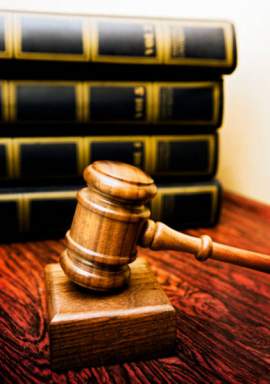
Child Abuse Facts

What is Child Abuse?
Child Abuse is classified as the general mishandling and wrongdoing with regard to a child or an individual considered to be a minor. Child abuse can range from neglect to aggravated assault of a child. Child abuse can be psychological, physical, emotional, and sexual in nature. It can mirror any type of abuse directed at an adult, yet due to the nature of the age(s) of the victim(s), punishment for convicted child abusers are typically severe.
Although Child Abuse is classified as abuse directed towards a minor, the severity of child abuse convictions and punishment can rely heavily on the respective age of the victim in question.
Child Abuse Offense Profile
Legal Jurisdiction: Criminal Law, Child Law, or Family Law
Type of Crime: Typically a Felony, yet varies upon case details
Criminal Code: Varies upon the location of the crime, including the applicable country, nation, state, or province
Range of Punishment(s): Fines, Probation, Restraining Order, or Incarceration – varies upon case details
Duration of Punishment(s): Varies upon case details
Applicable Punishment(s): Varies upon individual intent, criminal record, criminal history, and the age(s) of the alleged victim(s). In cases involving child abuse of a sexual nature, an individual found guilty may be forced to register with a sex offender registry. Mandatory therapy might be instated in the case of other types of child abuse cases.
Associated Offenses and Subgenres:
Child Molestation: The sexual defilement of an individual whom is deemed to retain the legal status of a minor. Child molestation can consist of a multitude of acts constituting sexual abuse.
Physical Child Abuse: The assault of a child or minor through the use of force, violence, or any other variety of physical means intended for bodily harm.
Psychological and Emotional Child Abuse: The verbal or emotional debasement directed at a child or minor. Although this type of child abuse can be the most difficult to define, it is nonetheless an extremely serious offense.
Neglect: Any act of delinquency with regard to the well-being and welfare of a child. This can include abandonment, disregard, and rejection.
The Arrest Process for a Child Abuse Charge
In the event that the prospect exists in which an individual is at risk for or has been arrested as a result of a Child Abuse charge, it is of the utmost importance that they are aware and mindful of the basic legality associated with the criminal justice system. Individuals who have been served documentation in the form of an arrest warrant displaying a Child Abuse, or have been arrested by law enforcement, are encouraged to cooperate with the arresting officers regardless of personal belief with regard to the charges.
Individuals under arrest will be given the opportunity to consult with legal specialists subsequent to the arrest process. Resisting or fleeing from a Child Abuse arrest can result in harm, injury, and additional penalties. Upon arrest, an individual should be made aware of the following in order to prevent any further complication(s):
Due Process with regard to a Child Abuse Charge
In the United States, due process is defined as the Government’s obligation to respect, maintain, and uphold the legal rights of its citizen in the event of an arrest. The Government must retain an individual’s human rights and liberties. This includes fair, respectful, and ethical treatment devoid of undue violence and harm.
Habeas Corpus with regard to a Child Abuse Charge
Subsequent to an arrest resulting from a Child Abuse charge, the notion of habeas corpus entitles all individuals to the right to a trial in a court of law. In addition, each individual is granted the right to legal representation. Pertinent details regarding any Child Abuse allegation should be discussed with a defense attorney.
The Presumption of Innocence
In the event that an individual is arrested as a result of a Child Abuse charge, criminal law within the United States maintains the innocence of that individual unless they are found guilty within a court of law or they have admitted guilt on their own accord.
Miranda Rights
Upon the arrest for a Child Abuse charge, this is the standard arrest protocol that must be upheld by any and all arresting officers. Miranda Rights include the Fifth Amendment, which states that an individual retains the right to remain silent in order to avoid incriminating themselves. This is also known as ‘pleading the Fifth’. In addition, Miranda Rights also guarantee the following rights with regard to an arrest:
The right to remain silent
The right for any words spoken during the arrest to be admissible during a trial
The right to consult with an attorney regardless of financial stature
The acknowledgement that the individual arrested for the Child Abuse charge understands the aforementioned rights.
The Preparation of a Child Abuse Defense
In the event that an individual has been arrested on a Child Abuse charge, they are encouraged to observe the behavioral protocol of the arrest process. Individuals are encouraged to consult with attorneys specializing in criminal law and, if possible, those who focus on Family Law and Child Abuse legality. In the construction of a defense, the individual may be asked to provide the following:
Evidence and witness testimony with regard to the alleged victims of the abuse
Illustration of the defendant’s relationship to the child claiming the abuse in question
Any previous arrests and/or convictions
Evidence and witness testimony
A detailed account of the details surrounding the event in question
The inclusion of the name(s) of individuals involved
The arrangement for bail or bond
NEXT: Drug Abuse



















